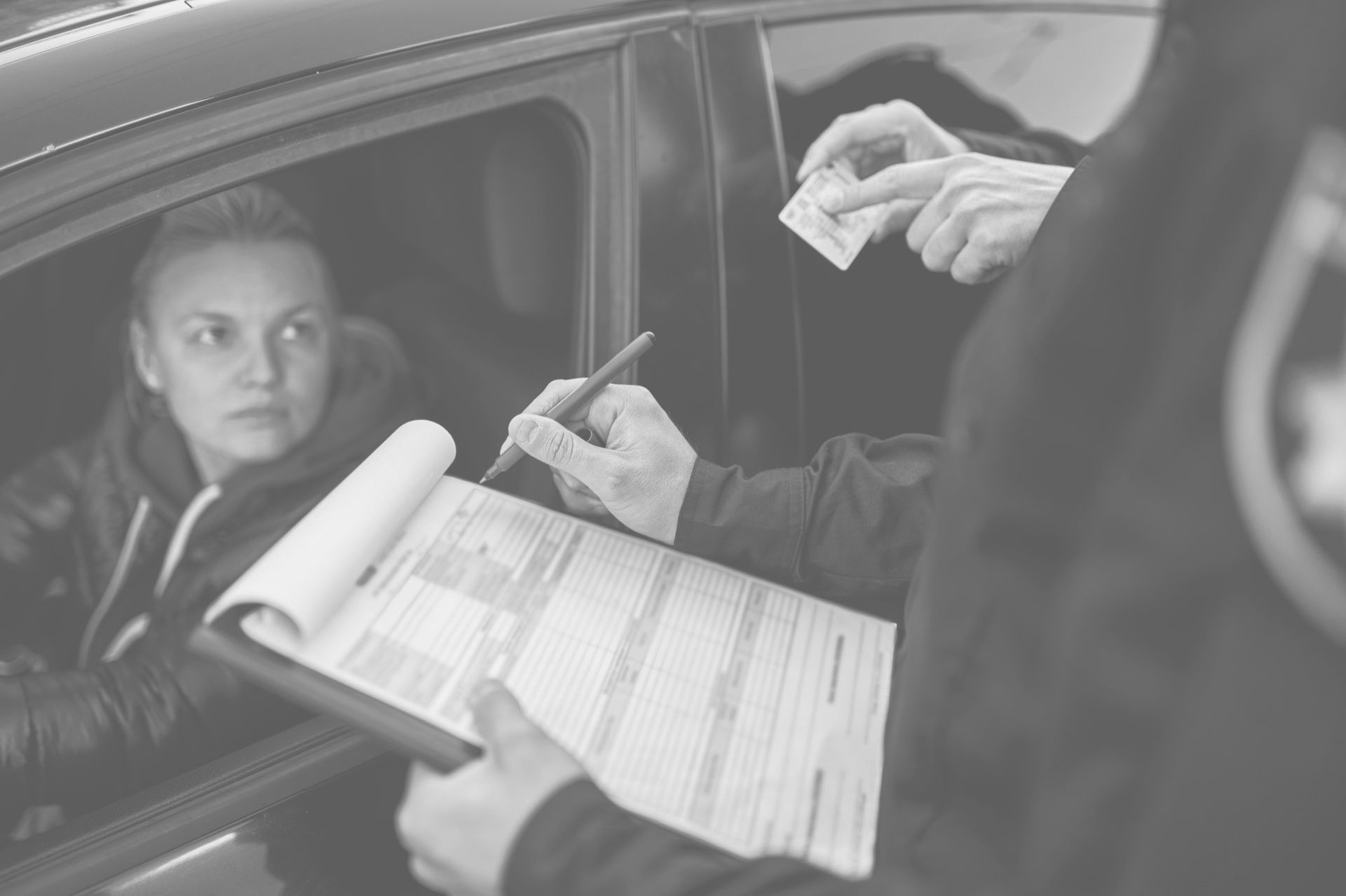Rolando Cantu is the founding attorney of the Law Office of Rolando D. Cantu. He is committed to providing aggressive and high level legal representation—successfully defending clients charged with state and federal criminal offenses. He works on every case as a priority with personal attention, while prioritizing their needs.
Contact Info
515 Pecan Blvd. McAllen,
Texas, United States 78501
Tel. +1 956-267-9898
Email: cantulaw@outlook.com
Call Now for a FREE CONSULTATION (956)-267-9898
I Crashed My Car And Got a DUI- What's Next?
Written by Law Office of Rolando Cantú, reviewed by Rolando Cantú
I Crashed My Car And Got a DUI- What's Next?
To put it simply, if you ever find yourself with a DUI (Driving Under the Influence), you must be aware of the seriousness of the situation in Texas, especially when the accident caused injuries, deaths or property damage. In most car accident cases, the legal consequences of a DUI conviction do not end with the normal penalties of first time DUI or DWI, rather it becomes a felony with severe outcomes.
- The Impact of a DUI Accident in Texas
- DUI Accidents Causing Injury
- DUI Accidents Leading to Fatality
- DUI and Property Damage
- Leaving the Scene of an Accident
- Chemical Test Requirements in DUI Accidents
- The Critical Role of Legal Representation
The Impact of a DUI Accident in Texas
In a DUI case that ends up in an accident, the stakes are extremely high. The severity of the charges and the resulting penalties vary based on the nature of a DWI/DUI car accident —whether it involves injury, death, or property damage.
DUI Accidents Causing Injury
In Texas Penal Code § 49.07, intoxication assault is a felony in Texas, and it happens when an intoxicated person causes a DUI accident and another person becomes seriously injured. It is a third degree crime with the imposition of punishment to punish people.
If convicted, the offender may face imprisonment for a period ranging from 2 to 10 years, along with fines that can reach up to $10,000.
However, the charges escalate when the victim is an emergency responder on duty, or the damage causes traumatic brain injuries. In these situations, the offense is elevated to a second-degree felony to highlight increased harm and the consequent need for stronger legal action.
DUI Accidents Leading to Fatality
Texas has a more tragic case of DUI accidents that resulted into fatalities prosecuted as a second-degree felony under intoxication manslaughter (Texas Penal Code § 49.08). Therefore, it follows that a standard punishment of 2 to 20 years in a prison with an equivalent amount of fine of $10,000 will be applied to individuals convicted on this offense.
In case of death of an individual in the accident, chances are that you will be charged with Vehicular Manslaughter or Vehicular Homicide while Intoxicated. In Texas Penal Code § 19.05, an offense of this kind is a state jail felony, which may scale to a felony DUI offense.

Nevertheless, the seriousness of the crime can be aggravated in some instances. For example, if the person injured during the accident is a working firefighter or emergency medical personnel, the offense is raised to a first-degree felony. Where such acts will be involved, those found guilty will receive more severe punishments like imprisonment for 5 to 99 years and fines of up to US$ 10,000.
These laws show that they take DUI accidents seriously and intend to discourage anyone from driving drunk, especially when a fatality is involved.
DUI and Property Damage
If your DUI only causes property damage, you can be charged with reckless damage. Reckless damage is any damage of property due to reckless or negligent behavior while driving under the influence. This may entail car accidents with other vehicles, damage to road signs or barriers or destruction of public or private properties. When deciding on the right charges and penalties, the severity of the damage will also be considered.
This constitutes a Class C misdemeanor, punishable by fine not exceeding five hundred dollars according to Texas Penal Code section 28.04. It is worth noting that these penalties are separate from those imposed for the DWI offense itself.
It is important to note that the liability for reckless damage is separate from DWI charges. Therefore, if you are found guilty of both, you may be fined, face license suspension, mandatory alcohol education program, among others, and even go behind bars. Seeking legal counsel is always recommended when facing DUI charges to know the precise laws and penalties in your locality.
Leaving the Scene of an Accident
Fleeing the scene of an accident (also known as a hit and run) can attract severe legal implications. Not only does it exacerbate legal issues but it also creates a question of personal responsibility. However, the seriousness of this crime largely depends on the circumstances.
For example, the range of charges can vary significantly depending on the severity of the offense:
- Class C misdemeanor: for minor property damage
- Class B misdemeanor: for significant property damage or minor bodily injury
- Class A misdemeanor: for serious bodily injury
- Third-degree felony: for death or serious bodily injury to a first responder
- Second-degree felony: leaving the scene of an accident resulting in a fatality.
Besides facing legal penalties, leaving the scene of the accident can as well lead to the suspension or revokation of your driver’s license and insurance company may refuse to compensate you or your victims. Irrespective of the perception level of the incident, one should remain at the scene to exchange the personal details of all the parties involved.
It is vital to acknowledge that such actions have the potential to bring about far-reaching implications and moral obligations.
Chemical Test Requirements in DUI Accidents
In standard DWI incidents, you may refuse a chemical test if you choose to do so. However, it's important to note that in accidents involving serious injuries or fatalities, it must be highlighted that in case of accidents leading to severe injuries or death, this right of refusal is no longer applicable. In such instances, the relevant state authorities will issue a warrant for a mandatory chemical test.
It is the most important test as it helps to establish whether there are drugs or alcohol in your system. When conducting it ensures a complete investigation of the incident. It guarantees accuracy and dependability of the results that can be used to achieve the fair outcome for both the defendant and victim..
The Critical Role of Legal Representation
In the case of DUI charge in Texas, and especially when such led to an accident, experienced attorney is a must. The charges are complex and severe and therefore require a defense strategy tailored to the particular circumstances of your case.
The
Law Office of Rolando Cantu are conversant with the specificities of Texas DWI laws and ready to offer aggressive and dedicated representation. In negotiating plea deals, challenging evidence, or representing you in court, our aim is to ensure your rights and to achieve the best outcome. Don’t go it alone regarding criminal charges –
call us today for a consultation.
Rolando Cantu is the founding attorney of the Law Office of Rolando D. Cantu. He is committed to providing aggressive and high level legal representation—successfully defending clients charged with state and federal criminal offenses. He works on every case as a priority with personal attention, while prioritizing their needs.
Contact Info
515 Pecan Blvd. McAllen,
Texas, United States 78501
Tel. +1 956-267-9898
Email: cantulaw@outlook.com














